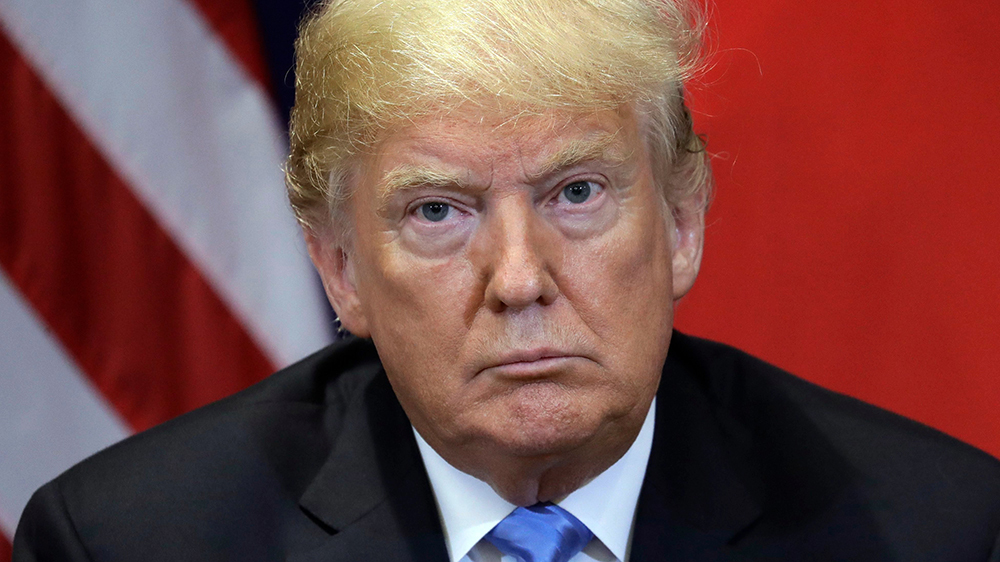Groups representing many arms of the industry– automakers, dealers, parts suppliers and aftermarket companies as well– are in lockstep in their opposition of new levies being taken into consideration by the White House, a rarity for an industry that often disagrees on major policies.
And despite months of aggressive lobbying to block new tariffs, industry officials worry the new levies are a lot more than just a bargaining chip in Trump’s trade talks with the European Union, Japan and China.
“Nobody in the auto industry supports a 25 per cent import tariff, unlike in the steel and aluminium tariff situation where you had the steel industry advocating for relief,” said Jennifer Thomas, vice president of federal affairs at the Alliance of Automobile Manufacturers, at a meeting with Bloomberg News reporters and editors in Washington. Her group stands for a dozen carmakers including General Motors Co., Volkswagen AG and Toyota Motor Corp.
Trump is reviewing the recommendations of a Commerce Department probe into whether imported light vehicles and parts designate a threat to national security. Commerce carried out the investigation under section 232 of the Trade Expansion Act, the same provision the president used last year to put duties on steel and aluminium.
Under section 232, Trump has until May 18 to decide how to react to the Commerce recommendations. White House economic adviser Larry Kudlow said Thursday that the president may take longer, without elaborating.
The probe dealt with imports of vehicles including SUVs, vans and light trucks, as well as auto parts.
The trade groups are pushing back against tariffs by organizing “fly-ins” to bring dealers and senior auto executives to knock on doors around the Capitol and make their case.
Subaru of America President Tom Doll visited Washington earlier this week and warned the company’s more than seven-year-long streak of monthly U.S. sales gains may end if new tariffs are imposed.
Fly-ins
” I came up here specifically to talk to our Congress people about these tariffs and the impact that they’re potentially having on our entire distribution chain and how that eventually is going to work itself through the distribution chain into our pricing,” Doll said in an interview with Bloomberg TV on Tuesday. “This is something that we’re getting a lot of sympathy with from the Congress folks, so we’re hopeful that this resolves itself.”
A 25 per cent tariff on all parts and autos could boost new vehicle prices by an estimated $4,400 on average, according to a 2018 study by the Center for Automotive Research. Imported vehicles prices could rise by $6,875 per vehicle and U.S.-made autos may see a $2,270 bump, according to the report, which estimated more than 700,000 U.S. jobs could be lost as well.
Business conditions in the auto industry are beginning to weaken due to softening auto sales, rising interest rates, vehicle transaction prices at or near record highs along with rising costs from Trump’s steel and aluminum tariffs and new levies on certain auto parts from China, said John Bozzella, president of the Association of Global Automakers.
“We have a significant challenge ahead of us if these go into effect,” he said.
Beyond the new-vehicle market, driveway mechanics would see the price to replace brakes pads and rotors jump by $130 under the new levies, said Gabrielle Hopkins, vice president of federal affairs at the aftermarket industry’s Auto Care Association.
The effects can be even greater. Those predictions don’t account for potential retaliation by other countries, which Bozzella said would be inevitable.
“Our trading partners will not stand idly by and accept this. There will be retaliation,” said Bozzella, whose group represents Honda Motor Co., Hyundai Motor Co. and others.
READ ALSO: Auto Journalists plan Capacity building Session
Trump’s tariffs on steel and aluminium have already added roughly $400 per car on average in additional costs to Ford Motor Co., GM and Fiat Chrysler Automobiles NV, said Matt Blunt, president of the American Automotive Policy Council that represents those companies.
“That $400 in an extremely competitive global industry has an impact on our ability to compete in export markets,” said Blunt, a former Missouri governor.
Trade concerns are clouding the outlook for parts suppliers, in particular for the smaller players deeper in the auto supply chain who are reporting the highest degree of pessimism since U.S. auto sales collapsed in 2008 and 2009 during the financial crisis, said Ann Wilson, senior vice president of government affairs at the Motor and Equipment Manufacturers Association, which represents auto suppliers.
Already, some companies are shuttering plants due to higher steel and aluminium costs and as automakers shift component purchases overseas to avoid those soon metal levies, Wilson said.












